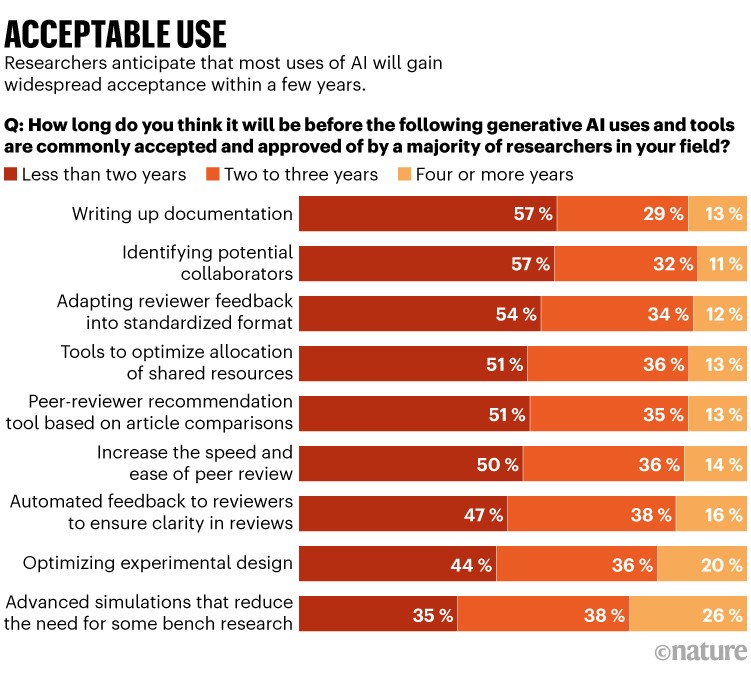Hello Nature readers, would you like to get this Briefing in your inbox free every day? Sign up here.

Surgeons at Massachusetts General Hospital in Boston transplanted a modified pig kidney into a living person for the first time in 2024.Credit: Massachusetts General Hospital
Pig organ trial given the go ahead
The first clinical trial testing whether pig organs can be safely transplanted into people has been approved by the US Food and Drug Administration. Six people with end-stage renal disease will receive kidneys from pigs that have been genetically modified to reduce the risk of the organ being rejected. Patients will be closely monitored for about six months for serious adverse events and signs of kidney damage, and then followed up with for the rest of their lives. Around half a dozen people have received organs from gene-edited pigs before, but these surgeries were approved on a case-by-case, compassionate basis.
How researchers are using AI
A survey of nearly 5,000 researchers worldwide by publisher Wiley suggests that using artificial intelligence (AI) tools for processes such as preparing manuscripts, writing grant applications and peer review will become widely accepted within the next two years. Only 45% of the first wave of respondents (1,043 researchers) said that they had actually used AI to help with their research, and the most common uses they cited were translation, proofreading and editing manuscripts. However, the majority of those surveyed expressed interest in expanding their AI use.
Reference: Wiley survey results

Source: ExplanAItions report, Wiley
Features & opinion
What Google and AI are doing to our brains
Is having the world’s knowledge at our fingertips tempting us to do some serious ‘cognitive offloading’ — meaning we remember less information ourselves? Some studies suggest that the Internet and digital technologies can affect performance on specific tasks: for example, people who use GPS devices seem worse at recalling routes. But there is not convincing evidence that the Internet is weakening our memory more broadly (you’re probably just getting older, says Daniel Schacter, who studies memory). That story could change with generative-AI tools, such as ChatGPT, say researchers: the output tends to be riddled with convincing errors that might seed false memories.
Physicists: don’t fear the fringe
“Few scientists today would welcome the idea that the progress of their disciplines owe anything to encounters with fringe or ‘pseudo’ sciences,” writes historian Richard Noakes. But the hard boundaries between “science and its shadowy other” have not always been so clear cut, he argues. For example, in the 1870s, analytical chemist William Crookes applied rigorous methods to investigate claims of contact with the spirit world, alongside his award-winning work to experimentally demonstrate a controversial mechanical effect of radiation in a vacuum.
